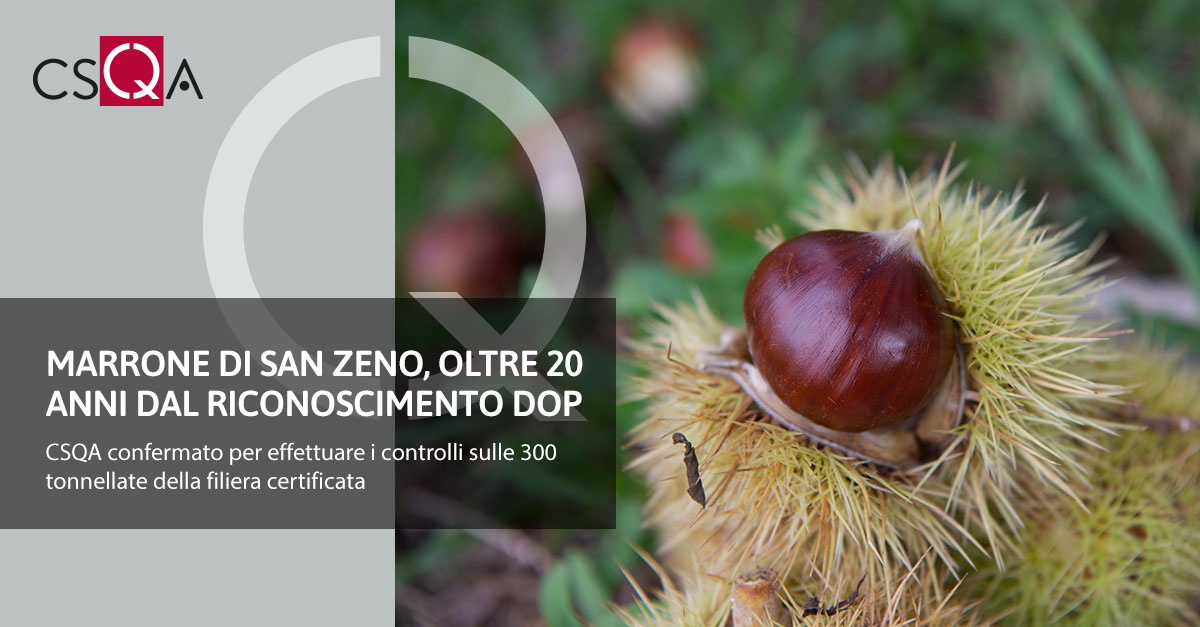 The Central Inspectorate for the Protection of Quality and Repression of Fraud ( ICQRF ) of agri-food products of the Ministry of Agriculture, Food Sovereignty and Forestry ( Masaf ) has renewed for the next three years the authorization for CSQA to carry out checks for the Designation of Protected Origin Brown of San Zeno.
The Central Inspectorate for the Protection of Quality and Repression of Fraud ( ICQRF ) of agri-food products of the Ministry of Agriculture, Food Sovereignty and Forestry ( Masaf ) has renewed for the next three years the authorization for CSQA to carry out checks for the Designation of Protected Origin Brown of San Zeno.Marrone di San Zeno PDO is cultivated in the traditional vegetation zone of Castanetum, between 250 and 900 m above sea level in the area between Lake Garda and Monte Baldo, in the province of Verona .
In the mountain community of Monte Baldo, chestnut cultivation has represented an important economic resource in past centuries with the first historical references on chestnut cultivation dating back to the Middle Ages.
The Consortium for the Protection of Marrone di San Zeno PDO today brings together forty-five members with over 30 companies involved in the annual production of approximately 300 quintals of certified product, much of which is also organic.
The Consortium recently celebrated 20 years since European recognition.
«We are very proud to cross the finish line of 20 years of the PDO with our product which has an ancient tradition and continues to be appreciated and sought after right here where it is grown», comments the president of the San Zeno Chestnut Consortium Simone Campagnari who adds “The activity of the Consortium and the producers over the years has been, among others, that of recovering plants of notable historical and cultural importance which can be more than 400 years old.
In fact, it is preferable to recover old chestnut trees rather than plant new ones since it takes around twenty years for their production: those who plant chestnut trees do so for their children because they will be the ones to reap the fruits."